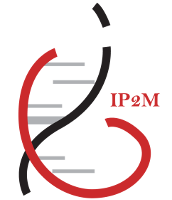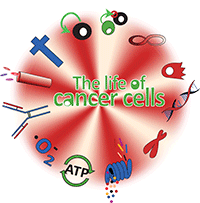|
|
|
Program > Keynote Speakers
Cancer remains one of the most challenging diseases that affects humans, due to its heterogeneity. The cancer biology field have been for decades an interesting and challenging domain for researchers. Despite huge work and research have been done in order to elucidate the molecular and cellular mechanisms behind tumor formation and metastasis, several essential work are still needed to be performed, in order to identify and determine specific biomarkers to target specifically cancer cells and have more efficient treatment results.
The proposed meeting focuses on the cellular and molecular processes that take place in a cell leading to its transformation and to its escape of the immune system, followed by its release from its environment and being seeded and then soiled in a new environment. Briefly, key hallmarks of a cancerogenesis. Furthermore, this meeting will also focus on the most cutting edge treatments to be done in order to eradicate the tumor.
The scientific program of the meeting is organized in four sessions, each consisting of a keynote talk plus three short talks, an "Ethics & Science" session around a conference and a debate, and two poster sessions, all under the general theme of "The life of cancer cells".
Session 1 - Cancer initiation
The coordinated orchestration of all cell processes is essential to maintain its normal functions. However, exogenous and endogenous agents are a major threat for the cell. This can lead to the rise of mutations, epigenetic aberrations and other sources of genomic instability, and therefore malignant transformation. Among this insults, mutations leading to activation of oncogene or inactivation of tumor suppressor gene have been mainly reported to be a reason behind the initiation of the life of a cancer cell.
Keynote presentation by Dr. Miguel Godinho Ferreira
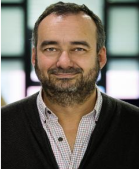 Dr. Miguel Godinho Ferreira is a Principle Investigator at the Institute for Research on Cancer and Aging in Nice (IRCAN), France. His laboratory is interested in understanding the mechanisms that promote the rise of cancer incidence with age and the role that telomeres plays on this phenomenon. His laboratory has developed an original vertebrate model system, the zebrafish, to study the development of cancer in low proliferating cells. Dr. Godinho Ferreira previous discoveries were key in the telomere field, where he has demonstrated the mechanisms underlying telomere protection. Recently using the zebrafish model, Dr. Godinho Ferreira’s laboratory is trying to explain the mechanisms behind cancer arising as a consequence of senescence.
Dr. Miguel Godinho Ferreira is a Principle Investigator at the Institute for Research on Cancer and Aging in Nice (IRCAN), France. His laboratory is interested in understanding the mechanisms that promote the rise of cancer incidence with age and the role that telomeres plays on this phenomenon. His laboratory has developed an original vertebrate model system, the zebrafish, to study the development of cancer in low proliferating cells. Dr. Godinho Ferreira previous discoveries were key in the telomere field, where he has demonstrated the mechanisms underlying telomere protection. Recently using the zebrafish model, Dr. Godinho Ferreira’s laboratory is trying to explain the mechanisms behind cancer arising as a consequence of senescence.
Session 2 - Escaping the immune system
The role of the immune system is not only to protect against exogenous attacks, but also to maintain internal homeostasis. Therefore, the major role of the immune system is to be able to differentiate between self and nonself. However, the system is not flawless since one major aim of a cancer cell is to escape its detection by the immune system.
Keynote presentation by Dr. Nicolas Manel
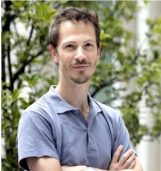 Dr. Nicolas Manel is a Principle Investigator at the Curie Institute in Paris, France. His laboratory is interested in investigating the regulation, function and application of innate immunity. His laboratory did crucial and important discoveries in the virus biology field, especially in virus sensing and in the response of the immune system to it. Recently, Dr. Manel’s laboratory aims in discovering the molecular mechanisms that enable the immune system to distinguish self from nonself-inside cells and the role of the cGAS-STING pathway in cancer. Furthermore, his laboratory is aiming in developing new therapeutics and new vaccines to fight infections and cancers via manipulation of the immune system.
Dr. Nicolas Manel is a Principle Investigator at the Curie Institute in Paris, France. His laboratory is interested in investigating the regulation, function and application of innate immunity. His laboratory did crucial and important discoveries in the virus biology field, especially in virus sensing and in the response of the immune system to it. Recently, Dr. Manel’s laboratory aims in discovering the molecular mechanisms that enable the immune system to distinguish self from nonself-inside cells and the role of the cGAS-STING pathway in cancer. Furthermore, his laboratory is aiming in developing new therapeutics and new vaccines to fight infections and cancers via manipulation of the immune system.
Session 3 - Conquer the whole body
Metastasis is the process by which cancer cells spread from the primary tumor to distant organs and represents the main cause of cancer death. In a first step, it involves the detachment of cancer cells from the primary tumor and the acquisition of migratory and invasive properties, a process known as epithelial-to-mesenchymal transition. Then, the metastatic cells need to infiltrate and travel through the bloodstream or the lymph system and finally be able to grow in their new settlement.
Keynote presentation by Dr. Andreu Casali
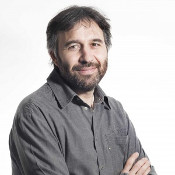 Dr. Andreu Casali is a Principal Investigator at the Lleida Biomedical Research Institute (IRBLleida), Spain. Dr. Casali’s laboratory is interested in metastasis mechanisms and cancer stem cells. His laboratory has just published an article on cell invasion and epithelial-to-mesenchymal transition.
Dr. Andreu Casali is a Principal Investigator at the Lleida Biomedical Research Institute (IRBLleida), Spain. Dr. Casali’s laboratory is interested in metastasis mechanisms and cancer stem cells. His laboratory has just published an article on cell invasion and epithelial-to-mesenchymal transition.
Session 4 - From bench to bedside: Searching for new treatments
Current cancer treatments are unfortunately not always successful due to the lack of sensitive biomarkers that allow early detection and treatment, poor or no response, and acquired resistance. Thus, this section will be dedicated to research on the discovery of new biomarkers that might allow cancer detection in its early steps and predict patient’s response and the searching for new druggable targets and combined therapies.
Keynote presentation by Dr. Daniel S. Peeper
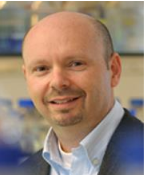 Dr. Daniel S. Peeper is a Principle Investigator at the Netherlands Cancer Institute. His laboratory is focused on developing new cancer treatments that target both cancer and immune cells at the same time. To do so, they use genome-wide screenings to find new druggable targets and predictive biomarkers to achieve a better and more sustained patient’s response to treatments.
Dr. Daniel S. Peeper is a Principle Investigator at the Netherlands Cancer Institute. His laboratory is focused on developing new cancer treatments that target both cancer and immune cells at the same time. To do so, they use genome-wide screenings to find new druggable targets and predictive biomarkers to achieve a better and more sustained patient’s response to treatments.
Ethics session
Cancer research, as any other type of research, is susceptible of dealing with sensitive questions. The knowledge generated must not only be accurate if it is ultimately to be passed on to patients, but the use of animal models, human samples, and clinical trials also pose problems in the design, conduct, consent and storage of patients data.
Keynote presentation by Dr. Hervé Chneiweiss
 Neurologist, Neurobiologist, Research Director at the CNRS and President of the INSERM ethics committee, Dr. Hervé Chneiweiss had studied the mechanisms linking the astrocyte to the genesis and the development of the brain tumors and had characterized tumoral stem cells in human brain tumors of children and adults, the analysis of which could lead to the development of new anti-cancer therapeutic strategies. Passionate, he is also an author and writer, and he should be the perfect person to lead this session of bioethics.
Neurologist, Neurobiologist, Research Director at the CNRS and President of the INSERM ethics committee, Dr. Hervé Chneiweiss had studied the mechanisms linking the astrocyte to the genesis and the development of the brain tumors and had characterized tumoral stem cells in human brain tumors of children and adults, the analysis of which could lead to the development of new anti-cancer therapeutic strategies. Passionate, he is also an author and writer, and he should be the perfect person to lead this session of bioethics.
Poster Sessions
The organizing committee will select abstracts for both short talks and posters. Two poster sessions will take place during the meeting, with an estimated number of 10-15 posters per session, depending on the number of participants. They will be held in the Genopolys open hall next to the lecture hall. To encourage and motivate students to submit their work, a scientific committee will present awards for the best short talk and best poster.
